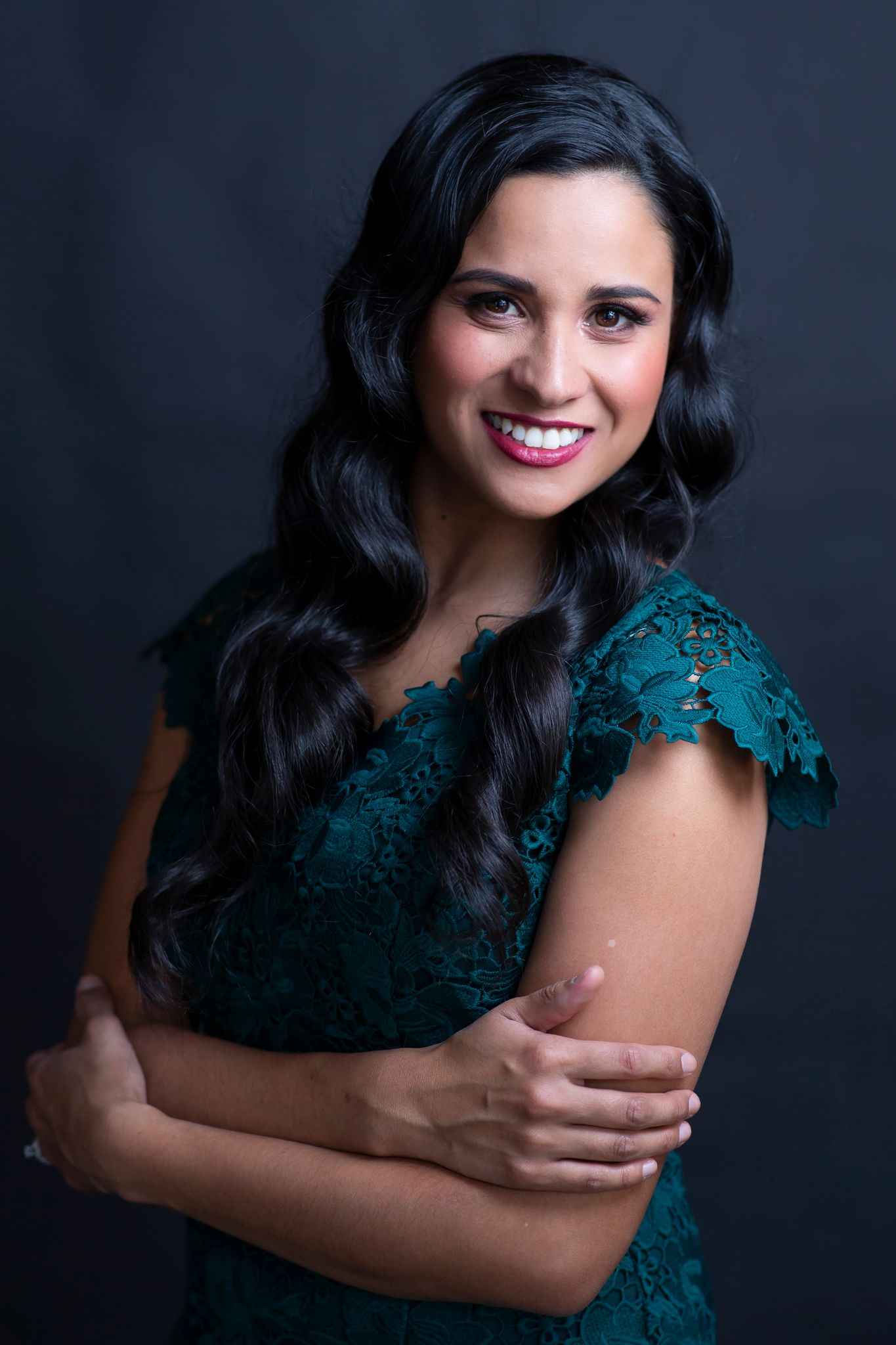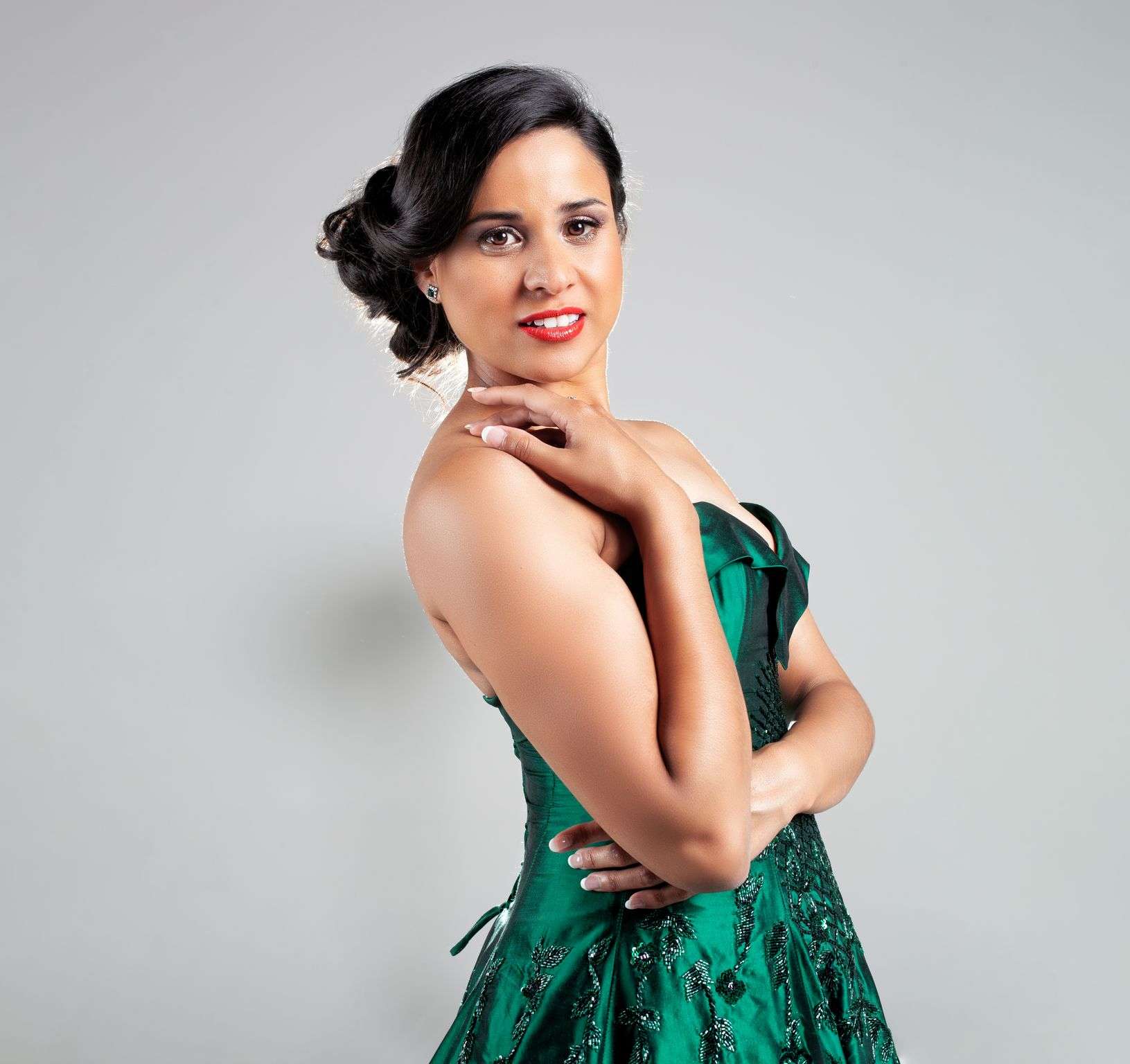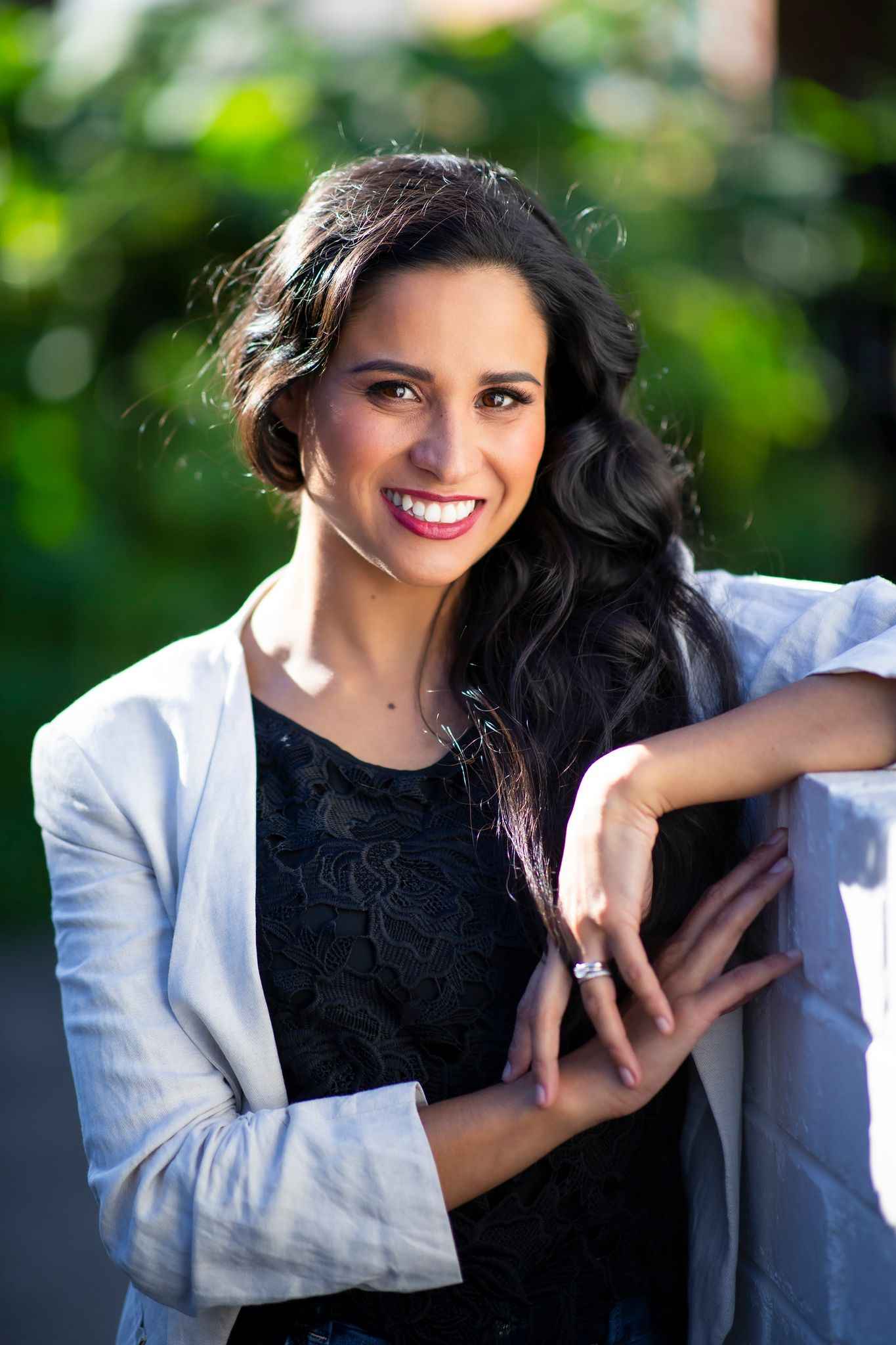
Soprano
Stacey Alleaume
"Alleaume’s luxurious soprano is a treasure to hear"
- Arts Review
Represented by

"Alleaume’s luxurious soprano is a treasure to hear"
- Arts Review
Represented by
Antonino Fogliani, Conductor
Antonino Fogliani, Conductor
Antonino Fogliani, Conductor
Antonino Fogliani, Conductor
Dmitry Matvienko, Conductor
Damiano Michieletto, Stage Director
Dmitry Matvienko, Conductor
Damiano Michieletto, Stage Director
Both house and role debut as Amina La Sonnambula with Deutsche Oper am Rhein, Gilda Rigoletto in the Bregenzer Festspiele, Violetta Valéry La Traviata with Opera Hong Kong, with Teatro Petruzzelli in Bari and with Welsh National Opera, return to Deutsche Oper am Rhein in the title roles in both Lucia di Lammermoor and Beatrice di Tenda, Louisa Betrothal in a Monastery at Theater an der Wien, Norina Don Pasquale with the Scottish Opera, appearances at Bregenzer Festspiele. In Opera Australia - Violetta Valéry La Traviata both on the mainstage and Handa Opera on Sydney Harbour, Pamina Die Zauberflöte, Fiorilla Il Turco in Italia, Sophie Werther, Gilda Rigoletto, Susanna Le Nozze di Figaro, Micaëla Carmen, Leïla The Pearl Fishers.
On the concert stage, she has performed works with the Tasmanian Symphony Orchestra, Adelaide Symphony Orchestra and the Melbourne Symphony Orchestra, notably Nielsen’s Symphony No. 3 under Maestro Sir Andrew Davis. She has appeared as a guest of Andrea Bocelli during his Australian concert tour in 2022.
Stacey was also featured in the Netflix romantic comedy Falling for Figaro as the singing voice of Millie (Danielle Macdonald). Directed by Ben Lewin, the film was released internationally in 2021.






Stacey Alleaume as Violetta in La Traviata - Highlights
Stacey Alleaume as Violetta in La Traviata - Highlights
Stacey Alleaume as Susanna in Le Nozze di Figaro - Highlights
Stacey Alleaume as Susanna in Le Nozze di Figaro - Highlights
Falling for Figaro - Stacey Alleaume as the singing voice of Millie
Falling for Figaro - Stacey Alleaume as the singing voice of Millie
The chorus is one of OA’s treasures and their singing was glorious, along with Alleaume’s by far the best of the night. Pamina’s lament Ach, ich fühl’s, rendered in this translation as “Now I know that love can vanish”, was an oasis of ravishing beauty
Heading the cast was the delightful Pamina of Stacey Alleaume who is carving out an impressive career in a wide variety of roles in Australia and abroad. She has an alluring stage presence with a beautiful, limpid voice of impressive projection and substance.
Stacey Alleaume, the much admired local soprano sings the main lead, Pamina. I’m a great admirer of Ms Alleaume, and as usual, she excels in every aspect of her role.
“...Australian-Mauritian soprano Stacey Alleaume as Gilda, a role she has made her own. Her thrilling high E flat at the end of Si vendetta, and her dying Lassù in cielo are worth the price of a ticket alone.
Alleaume’s pièce de resistance is her Caro nome che il mio cor, in which she sings about the first stirrings in her lovesick heart. Alleaume’s mastery of the aria should come as no surprise. During the 2019 Bregenz Festival, she made her European debut singing it from a balloon, some 15 metres above Lake
Constance.
Alleaume now trades aerial daredevilry for the bobby-soxer set, picking daisy petals from the upstairs window of her dollhouse home. Her superb control and crystal-clear voice make easy work of the aria’s coloratura section,
highlighting her character’s growing excitement and implied sexual awakening. It is hard to imagine a better Gilda anywhere in the world.
But it is Stacey Alleaume as Gilda who illuminates the stage with her soaring soprano notes, not only in her solos, but when her voice is floating like heaven above the duets and quartets.
As Gilda, Alleaume had a bright polished voice, singing Care nome in act one with coy lyricism. The tone was slightly exposed at the top but true in pitch, with attractively glowing rounded sound in soft notes and piercing strength in
ensembles.
Violetta. No one can change our mind about Stacey Alleaume. She was, hands down, the most talented performer we have seen so far gracing the stage of WNO in Cardiff. It wasn’t just about her talent (and she is extraordinarily talented). She was also extremely beautiful and graceful in her performance. When it concerns the opera world, one might find themselves easily blinded, confused or even overwhelmed by the music, the impeccable voices and the elaborate settings. However, when a performer like Stacey Alleaume succeeds in telling the character’s story, perhaps even in spite of their talent and the beauty of the opera itself, that’s when you are in for a real treat. And we really, really were.
Stacey Alleaume has an astonishing feeling for the stage, her Violetta one in a thousand
I’ve seen and heard some fine Violettas in my time, and some rather less than fine; but Stacey Alleaume’s performance here, her UK début, is by a distance the most inspiring I can remember. A young soprano from Australia (but half Mauritian, it seems), she has sung the role in her home country and elsewhere, and she is already completely on top of its vocal difficulties and its psychological and dramatic intricacies. Above all she displays from the start an astonishing feeling for the stage, an ability to move and respond, to exist, so to speak, as the person in the music and the story. She generates electricity, but not too much; she doesn’t say, watch me, listen to me, though of course one does. She is a natural. Presence is one thing, but a great voice helps. Verdi makes stupendous demands on this singer, who must be a dazzling coloratura soprano for much of the first act, but alternating with a more inward, intense, lyrical mode which then takes over as Violetta changes in the second act from a demi-mondaine to a tragic, passionate, profoundly human, loving young woman. In the first act Alleaume is both vibrant and frail, but in the second act she acquires the dignity to confront Germont and, by yielding, win. These are subtle matters, Verdi’s treatment of which elevates Traviata into one of the greatest and most moving operatic masterpieces. I can give Stacey Alleaume no higher praise than to say that, from here to her extraordinary death scene, she is equal, vocally and dramatically, to everything the composer throws at her.
All in all, a wonderful backdrop, against which Australian Mauritian Soprano Stacey Alleaume makes her debut with WNO. As principal soloist with Australian Opera, Alleaume brings an expertise to the central and demanding role of Violetta that earned her a standing ovation from many of the audience on the opening night in Cardiff. Her soaring soprano copes well with the skill required in performing some of Verdi’s most demanding arias, plus an ability to act which makes her an ideal choice for the role.
As the coquettish, calculating Fiorilla, soprano Stacey Alleaume cleverly varied her timbre between unadorned purity and richly coloured sultriness to match the moods of her character.
Stacey Alleaume triumphs in the role of Fiorilla with a tone of clarity, purity and warmth, navigating virtuosic coloratura passages with lively agility, and taking high notes with piercing fearlessness.
....Fiorilla, delightfully portrayed by Stacey Alleaume. Not only does she look gorgeous and sing impressively, Alleaume also holds her own in the comedy department, before stopping the show with her glittering coloratura in Fiorilla’s final aria, “A Wretched Damsel Brought Down By Fate
Stacey Alleaume took all of her roles with bright vocal colour, presenting cupid with fiery vocal and dramatic pluck.
Alleaume’s luxurious soprano is a treasure to hear, taking out Act 1’s finale before interval with a formidable and crushingly tragic lament when Procris continues to declare her love for Cefalo despite being cheated on.
Among the supporting cast, soprano Stacey Alleaume almost stole the show. Her bright, sparkling timbre created a hilarious, captivating turn as the bratty, punk rocker-styled Cupid. By contrast, her sinuously shaped, deeply felt aria as lovelorn Procris was the opera’s emotional centrepiece.
Homegrown star Stacey Alleaume revived her Susanna. As always, she was a winningly vibrant stage presence, well cast as Mozart’s sassy heroine. She was genuinely funny and fierce in Act 3’s “Riconosci in questo amplesso”, while her “Deh vieni non tardar” was touchingly lyrical, sung with intriguingly intimate staging from behind a gauze curtain as we see the Countess gesturing from the other side.
Stacey Alleaume is a gem as Susanna, creating a persona at once fresh and fierce, and singing with a bright, comely sound and lines that grow and taper with natural shape and curve. McVicar creates a crucial moment of candour by bringing her Act 4 aria, Deh vieni, non tardar, before the curtain as though to foreground its inner meaning (to Figaro) over its ostensible flirtatious role in the pretence. Alleaume made this moment the crux of the show.
In the end however, the evening belonged to Stacey Alleaume as Susanna and Tommaso Barea as Figaro. The titular hero may ostensibly be the intrigant of the piece, but Alleaume more than proves that Susanna has always been the brains of the outfit. McVicar’s direction ensures that we observe the goings-on through her eyes and, while the other characters seem to occupy their own world behind the footlights, Susanna is allowed to break the fourth wall with a quick aside to the audience every now and then. Alleaume rises to the challenge of being both the dramatic and musical focal point. Her stunning Giunse alfin il momento...Deh vieni, non tardar in Act IV is arguably the highlight of the evening and is performed in front of a gauze curtain that separates her from the rest of the stage.
The single work in the concert’s second half was Francis Poulenc’s (1899-1963) setting of the Gloria(1961) from the Latin mass, its joyously vibrant musicality inducing a complete reversal of the emotional register established before the interval. Stacey Alleaume’s voice is perfect for this role. The imagery shown is of the musicians and singers performing, suggesting that it is in the act of human connection that we might achieve a better future. The musical performances throughout are excellent, and soloists Stacey Alleaume and Nicholas Jones are outstanding
Central to the first half were two powerful works by Latvian composer Peteris Vasks. Prayer for a Mother featured the lovely voice of soprano Stacey Alleaume, who sang with heartfelt sentiment and exquisite control.” “After interval came the neoclassical Gloria by Francis Poulenc. Stacey Alleaume shone in a work that made a striking contrast with the first half.
Stacey Alleaume dominated the stage from curtain up to tragic conclusion, her vibrant soprano ranging up and down effortlessly as the doomed heroine, Violetta, transforms from vivacious Parisian courtesan to consumptive ruin.
Stacey Alleaume wows us with the reality of her depiction of illness, and with a stunning version of the well-known ‘Addio del passato’ aria. Her multidirectional, multicoloured singing whilst slumped and dying is a tour de force of interpretation and convincing acting. Her virtuosically changeable vocal tone in urgent solo and ensemble moments is exemplary.
As Violetta, Australian-Mauritian soprano Stacey Alleaume stole the show.” This was a marvelously detailed portrait of the consumptive courtesan close to death…. there was marvelous sense of gesture complementing her vocal characterizations as well, and overall a great arc in her interpretation.